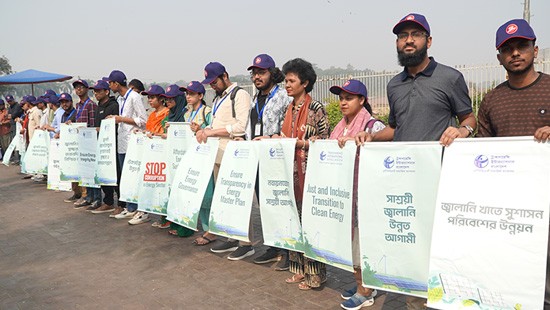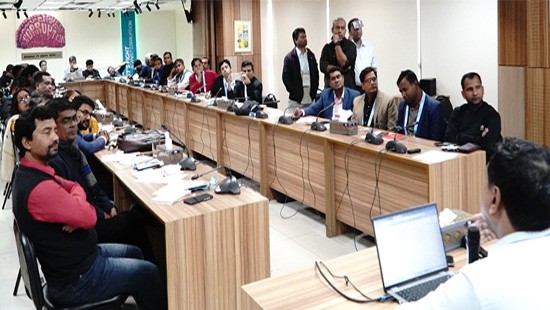Published: 18 March 2023

As press freedom faces unprecedented challenges around the world, the field of journalism needs to evolve with an evidence-based approach to data collection, analysis, and presentation. This was the focus of the first Data Journalism Workshop organized by Transparency International Bangladesh (TIB) at the Department of Journalism and Media Studies at Jahangirnagar University.

The workshop brought together 40 students from the department to teach the basics of data journalism, including statistics and information. The five stages of data journalism from planning to impact assessment were also taught. The session began with a playful exercise using Lego blocks to construct datasets and then delved deeper into how data can be utilized for reporting on various issues.

The students were briefed on how data journalism can be an effective tool to ensure transparency and accountability in public expenditure, elections, procurement, and overall governance mechanisms. Participants were directed on how open-source data can be collected from public domains to make media reports more reliable, factual, and impactful. They were also advised to utilise Right to Information applications where open-source data is not accessible.
To help the students better understand how data can be sorted and classified for specific tasks, they were also given a copy of the Data Journalism Handbook, published by TIB in February this year. The students also learned about spreadsheet basics and took part in practice sessions during the workshop. The Data Journalism Handbook was developed by TIB as part of its PACTA project, which emphasises anti-corruption advocacy based on data generation and analysis. As data journalism is relatively new in Bangladesh, TIB has taken various initiatives to promote and build the capacity of stakeholders in the sector.
At the closing ceremony, Rakib Ahmed, Chairperson of the JMS Department at JU, highlighted the importance of incorporating data journalism in their course curriculum and expressed his satisfaction that the workshop was able to explore the topic with tools that can help build the capacities of journalists.

Dr. Iftekharuzzaman, the Executive Director of TIB, emphasized how data journalism can help journalists access more information to uncover corruption and irregularities. He stated, "TIB is working to enhance and promote data journalism as a powerful tool in the fight against corruption. We will continue to support more journalists through various capacity-building initiatives."
Overall, the Data Journalism Workshop organized by TIB has played an important role in equipping journalism students with the skills necessary to enhance the use of data in their reporting.






